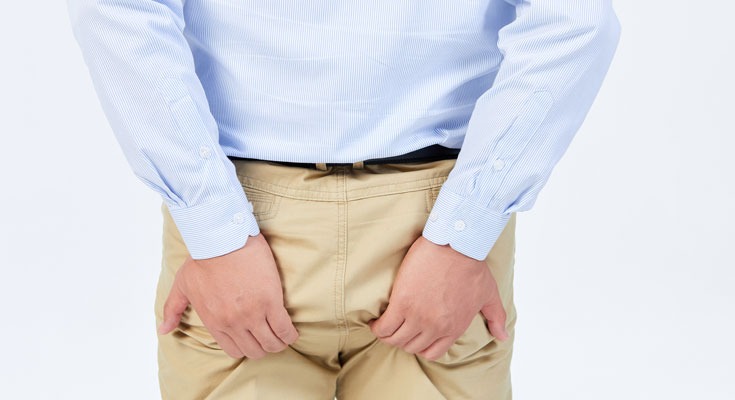Haemorrhoids can become a huge issue if the severity of this problem increases. According to Ayurveda, there are three types of haemorrhoids (piles) according to the dosha. If someone is suffering from bleeding and inflamed piles that are red and soft, this can happen because of dominant pitta dosha. In this, the person experiences various symptoms like thirst, fever and diarrhea.
Then comes, people with Vata dominant dosha suffer from black haemorrhoids with a rough and hard texture, and experience symptoms like constipation and extreme level of pain. Then the third types of haemorrhoids happen to people with dominant Kapha dosha experience haemorrhoids that are slippery, soft, large and white or light. In this type of haemorrhoids, the person experiences poor digestion.
What are Haemorrhoids?
Haemorrhoids are also known as piles, and in this condition, the person experiences swollen veins in your anus and lower rectum which are alike to varicose veins. Piles can develop inside the rectum, which is called internal haemorrhoids, and when piles develop under the skin around the anus, it is called external haemorrhoids. In the internal haemorrhoids, piles remain inside the rectum and the person will not able to see or feel them and rarely lead to discomfort. But, if you try to strain the stool, this can cause irritation and further issues.
Piles occur nearly to three out of four adults in their lifetime or from time to time. Piles occur because of various reasons and today we will discuss the causes and symptoms of haemorrhoids (piles). Based on the severity, many people get relief from medication and various other treatments.
Symptoms of Haemorrhoids are:
The symptoms of piles are based on the type of piles you are suffering from, like external or internal haemorrhoids.
In external haemorrhoids your experience:
- Itching or irritation in your anal region.
- Pain or discomfort.
- Swelling around your anus.
- Bleeding.
In internal haemorrhoids your experience:
- Bleeding without pain during the bowel movements.
- You may notice a small amount of blood in the toilet or toilet paper.
- When the haemorrhoid is pushed through the anal opening, this causes irritation and pain.
In the thrombosed haemorrhoids your experience:
- Swelling.
- A hard lump near your anus.
- Inflammation.
- Extreme pain.
When you should consult a Doctor?
If you are experiencing bleeding at the time of bowel movement and you are facing this problem for a week, make sure you consult a doctor as soon as you can. However, in any scenario, you should visit the doctor the same or the next day if you experience any of these symptoms of piles.
But, you should also know that rectal bleeding can occur because of other reasons as well and it does not occur because of haemorrhoids always. In case you experience any changes in your bowel habits and if the stools change colour or consistency, then this can also lead to bleeding. Bleeding can also happen because of cancer, colorectal cancer and other health problems.
In case you experience excessive bleeding, faintness and weakness, it is an emergency situation and you should see a doctor as soon as possible.
Here are the causes of haemorrhoids:
Haemorrhoids lead to excess pressure in the lower part of your rectum and the veins around the anus area bulge and swell due to excess pressure and stretch.
- Pregnancy.
- Obesity.
- Straining during the bowel movements.
- Due to heavy weight lifting on a daily basis.
- Due to anal intercourse.
- Having a diet that is low in fibre.
- Due to chronic constipation and diarrhea.
- Sitting for long hours on a toilet seat.
What are the risks related to Haemorrhoids?
When you age, the chances of developing haemorrhoids problem also increase. Over time, the veins and tissues in your anus and rectum stretch and become weak that can lead to haemorrhoids. The chances of developing haemorrhoids increase when a female is pregnant and when the baby’s weight puts pressure on the anal region.
Complications related to haemorrhoids (piles):
- Blood clot: Often, a blood clot can become a reason for haemorrhoid, however, it is not dangerous but it can cause excessive pain and needs to be drained and lanced in such scenarios.
- Strangulated haemorrhoids: In case of blood supply to an internal haemorrhoid is cut off, then this can cause haemorrhoids and result in extreme pain.
- Anemia: In the case of chronic blood loss from haemorrhoids can also result in anaemia, however, this condition is not common. When the red blood cell does not get enough oxygen, this can cause anaemia.
Prevention steps of haemorrhoid:
- Foods you eat on a daily basis can play a vital role in your health condition and even in a haemorrhoid (piles). Therefore, try to have foods that are rich in fiber, like fruits, vegetables and whole grains foods. This will help you to improve your digestion and prevent straining that can cause haemorrhoids.
- Drink enough fluids because lack of hydration can cause a problem in bowel movement. If you keep yourself hydrated this keep stools soft and improve digestion.
Another thing is to do as per your doctor’s advice and take all the medications on time and you can also ask for a diet plan because, as we suggested earlier in this blog, food plays a vital role.

